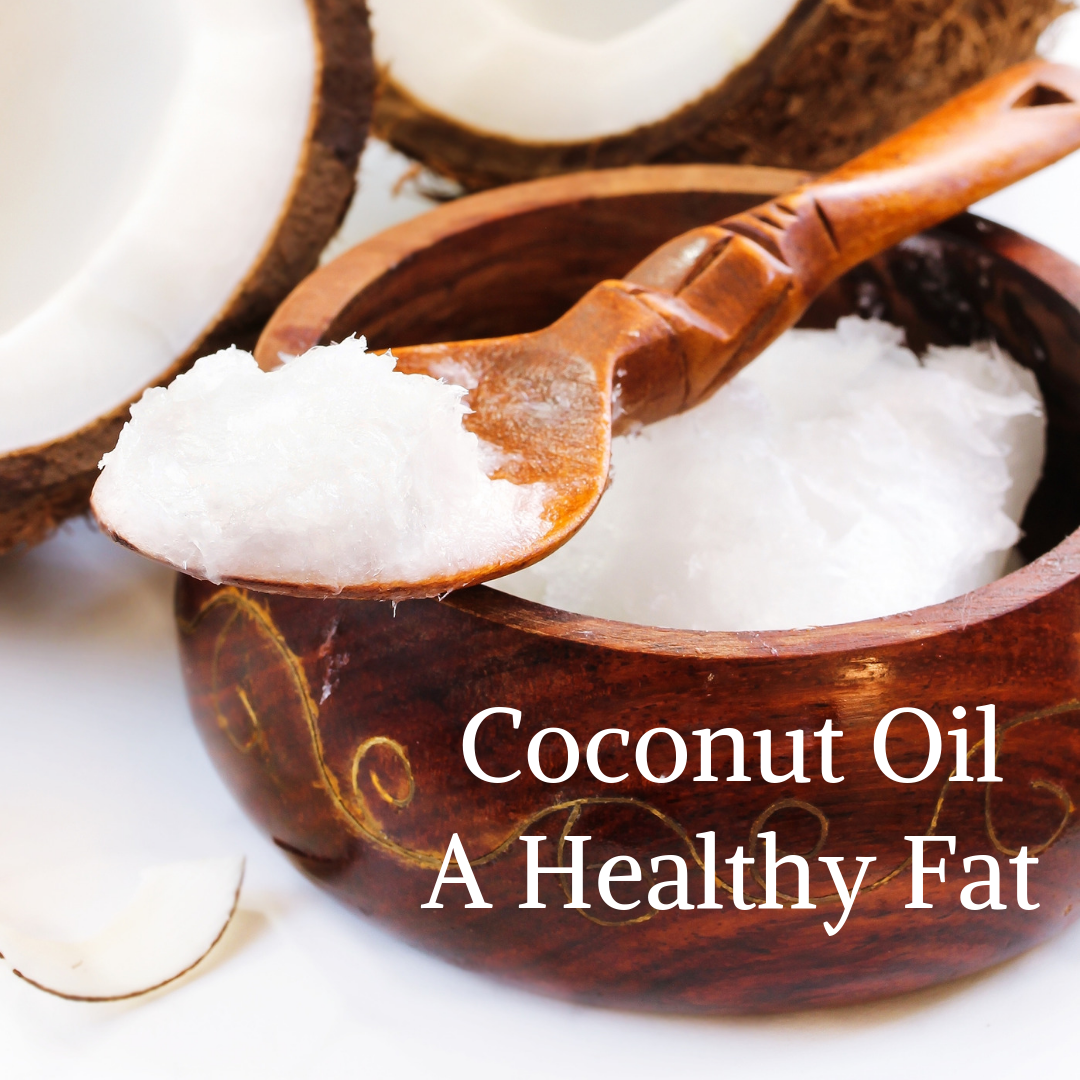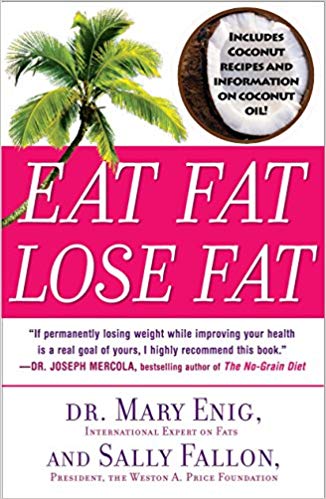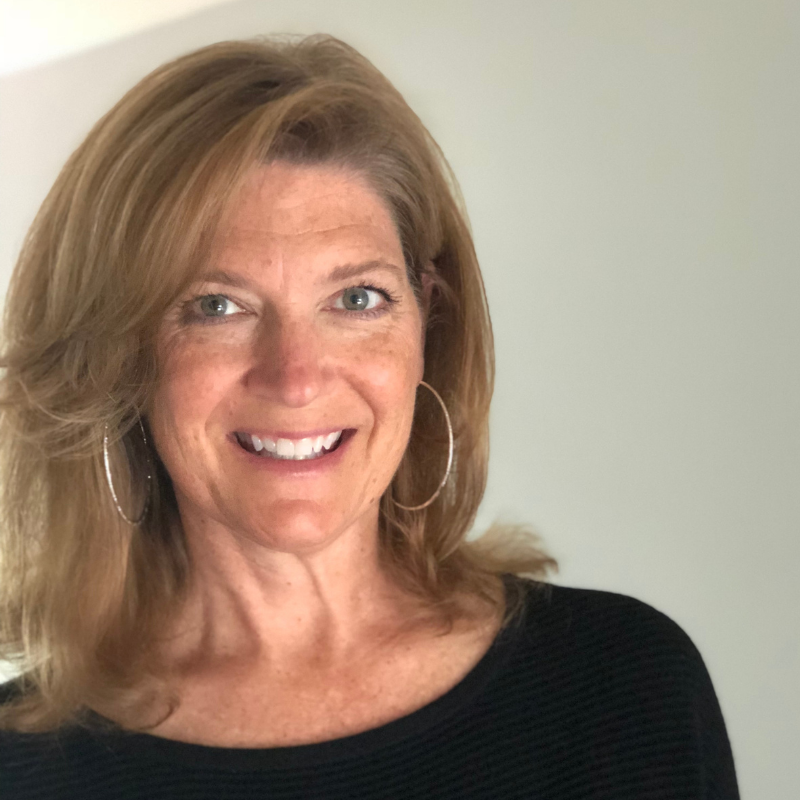Coconut Oil
 Coconut oil is one of those foods that’s either hot or not. One minute it’s a miracle food and the next it’s poison. Currently, coconut oil appears to be going through one of it’s not so hot phases. Recently, Harvard Professor Karin Michels was quoted as saying that coconut oil is “pure poison” and described the oil as ‘one of the worst foods you can eat.’ She even went on to say that lard was a healthier option than coconut oil. By the way, I totally agree that lard is a healthy fat ; )
Coconut oil is one of those foods that’s either hot or not. One minute it’s a miracle food and the next it’s poison. Currently, coconut oil appears to be going through one of it’s not so hot phases. Recently, Harvard Professor Karin Michels was quoted as saying that coconut oil is “pure poison” and described the oil as ‘one of the worst foods you can eat.’ She even went on to say that lard was a healthier option than coconut oil. By the way, I totally agree that lard is a healthy fat ; )
Two things, I follow and advocate a low-sugar lifestyle, meaning low-carb. I believe coconut oil, lard and other natural saturated fats are healthy fats and should be included as part of a low-carb lifestyle.
The primary reason coconut oil is periodically demonized, including in this most recent case, is because it is a saturated fat. Since the 1960s we, the American people, have been told that saturated fats will clog our arteries, cause heart disease and kill us. So, coconut oil, as a saturated fat will kill us just like any other poison or so the thinking goes.
All fats are made up of saturated fat, monosaturated fats and polyunsaturated fats. Fats that are categorized at ‘saturated’ have more saturated fat than mono or polyunsaturated fat. In coconut oil, the ratio is greatest for saturated fat. Lard is also a saturated fat but the amount of saturated fat in lard is less than the amount found in coconut oil, hence Professor Michels’ claiming that lard is better than coconut oil, less saturated.
Back to coconut oil being a healthy part of the diet or ‘pure poison’, that really comes down to whether or not you believe saturated fat is bad for the body. I do not, and for that reason, I am a fan of coconut oil and other dietary sources of saturated fats.
Dietary Fat
The fact that I don’t believe saturated fat to be harmful or cause heart disease leads me to a much longer post about fat, heart disease and the real root cause. I’m not going to go into all the details today. I’ll hold that post for next Tuesday.
‘Pure Poison’ Backlash
The ‘pure poison’ quote has garnered some serious back lash. It was a sensational headline, not unlike other headlines we see about nutrition but this time the wellness community got mad and slapped back.
One of the best bite backs I saw came from Dr. Aseem Malhtra, a prominent cardiologist in the U.K. He called out Professor Karin Michels stating:
‘Having reviewed the totality of the evidence I can tell you categorically that this claim is entirely false. The director of the Center of Evidenced Based Medicine in Brazil, Professor Luis Correia, cardiologist has said this is not evidence based and should be disregarded. I would say it’s unscientific nonsense. Research publish early this year in the British Medical Journal actually revealed that in comparison to olive oil, coconut oil had no adverse effect on cholesterol profile and in fact potentially improved it. There is also no long-term damage from eating saturated fat from looking at the totality of the evidence.”
He went on to call on Professor Michels to publicly retract her comment and make an apology or risk damaging Harvard’s reputation. I wish him good luck with that but even if the apology doesn’t come I, for one, appreciate Dr. Malhtra making the effort and asking for a retraction.
Coconut Oil, Cholesterol & Heart Disease
The study that Dr. Malhtra referenced in his statement to Professor Michels was a Cambridge University research study(1) looking at the effects of olive oil, coconut oil and butter on cholesterols levels. Olive oil has always been touted as a ‘healthy’ fat and has been shown to lower LDL cholesterol. This study compared 3 groups – those eating olive oil, coconut oil or butter.
The results:
- LDL (so called ‘bad’ cholesterol): “LDL-C concentrations were significantly increased on butter compared with coconut oil and with olive oil, with no differences in change of LDL-C in coconut oil compared with olive oil.” So coconut oil performed equally as well as the health darling olive oil ; )
- HDL (‘good’ cholesterol): Coconut oil significantly increased HDL-C compared with butter or olive oil. So, coconut oil out performed olive oil when it came to increasing the good cholesterol. Nice.
 In the book, The Big Fat Surprise by Nina Teicholz, you will find many references regarding the health benefits of coconut oil. Here is a quote from the book:
In the book, The Big Fat Surprise by Nina Teicholz, you will find many references regarding the health benefits of coconut oil. Here is a quote from the book:
“…heart disease was almost unknown among groups of Polynesian atoll dwellers who derived an enormous portion of their calories from coconuts and nearly two thirds of daily calories from coconut oil – without significant signs of heart disease. In Malaysia and the Philippines, too, where people ate large amounts of both palm and coconut oils, heart disease rates were lower than in Western nations.”
If you are interested to learn more facts about dietary fat, cholesterol and heart disease, I encourage you to read Nina Teicholz’s book, The Big Fat Surprise.
I’ll focus more on saturated fat and the diet-heart hypothesis (fats will kill you) in next my next blog post.
Coconut Oil, NOT Poison
If you like what you’ve read or done some of your own research and feel comfortable that fats, particularly saturated fats have been vilified for years without any real evidence then you should feel pretty comfortable that Coconut Oil is NOT poison.
The remainder of this post will focus on why coconut oil should be included as part of a healthy diet.
Health Benefits of Virgin Coconut Oil
Improves Cholesterol
Lowers total Cholesterol, triglycerides, phospholipids and LDL and raises HDL (good cholesterol) – all beneficial and the opposite of what we typically hear about coconut oil (and other saturated fats) being dangerous for cardiovascular health due to high cholesterol. (3)
Improves Marker of Heart Attack Risk
Lowers Lp(a), a blood marker used to evaluate risk of heart attack. A marker that is believed to be more accurate than basic cholesterol levels. (4)
Anti-Bacterial & Anti-Viral Properties
Anti-bacterial & Anti-Viral. Lauric acid and monolaurin, two derivatives of coconut oil are natural antimicrobial agents that attack dangerous viruses and bacteria. (5)
Monolaurin, found in breast milk helps babies develop a healthy immune system and fight infection. Monolourin is only found in breast milk AND coconut oil. As an adult, the monolourin in coconut oil helps strengthen the immune system and fight against viruses, bacteria and other pathogens. (6)
If you’d like to learn more about coconut oils anti-microbial properties especially as they related to Candida (yeast overgrowth) please read my friend and function nutrition collegue Deepa Kannan’s article, Can Coconut Oil Cure your Candida Overgrowth?
Immediate Energy Source
Over 50% Coconut Oil is composed of medium chain triglycerides (MCTs). Like all fats, coconut oil is composed of different types of fat, four of those are MCTs: Caproic Acid, Capryllic Acid, Capric Acid and Lauric Acid. The first three of these fatty acids are absorbed differently than other dietary fats. They don’t travel through the digestive tract to be broken down in the small intestine by bile salts then reabsorbed into the blood and turned into energy. When ingested, caproic acid, capryllic acid and capric acid go straight to the liver where they are broken down into ketone bodies (energy). These ketones are then sent from the liver out, all over the body as energy. (7)
This efficient conversion of MCTs to fuel allows the energy to be immediately used by organs and muscles instead of being stored as fat.(8) MCTs also increase thermogenesis, energy burn, which points to MCTs being burned off instead of stored as fat. (9)
Easily Digested
Again, because most of the MCTs found in coconut oil don’t have to follow the normal, long digestive process to be converted into energy they are more quickly and easily digested. If you have trouble digesting fats or are just starting to reintroduce fats back into your diet coconut oil is the right fat for you. (6)
Weight Loss
In a study comparing body fat changes when eating dietary fat composed of a mix of medium chain triglycerides (found in coconut oil) and long-chain triglycerides to just dietary fat of long chain triglycerides, there was a “significant decreases of body weight, the amount of body fat, subcutaneous (beneath the skin) and visceral fat (around the organs)” in the group that ate the medium & long chain mixed fat vs. the group that ate just the long chain fats. (10)
MCTs like those found in coconut oil are also believed to be more satiating which reduces appetite helping with weight loss and weight maintenance. (11)
As mentioned above, MCTs tend to have a positive effect on energy expenditure, an increase in resting metabolic rate. A study done in 1996 suggests that a low to moderate, regular intake of 15-30 grams (.5 – 1 ounce) of MCTs may help control body weight/fat by enhancing daily energy expenditure. (12)
Thyroid
I read several things about coconut oil supporting proper thyroid function. Most of this is in relationship to polyunsaturated fats. Basically, polyunsaturated fats, seed oils like soybean oil or canola oil will block thyroid hormone secretion, depressing metabolism and causing weight gain. (13) The benefit of coconut oil is that is doesn’t do this. So it’s not so much that it enhances thyroid function as it doesn’t block thyroid function. I find the thyroid connection interesting so I will probably do some more research around this.
This also leads me to another funny thing I’ve heard for years but can’t actually find a real study about. There are stories about farmers back in the 40s and 50s trying to save money by feeding their cows and/or pigs coconut oil. At the time coconut oil was an inexpensive option. The problem, the cows and pigs got lean, not fat and their energy increased. This was the exact opposite of what the farmers were going for. As the stories go, they rectified these issues by replacing the coconut oil with refined polyunsaturated fats which reduced metabolism (thyroid function) fattening the animals right up. You can read some of that story here.
Fats
I know I’ve over stepped on this post a bit. I’ve mentioned medium chain triglycerides and long chain triglycerides both of which may not make any sense to you. If you are confused and would like to know more please watch for next Tuesdays post. I’ll go into more detail about fats in general.
I tried to focus on coconut oil today but some general info. about fat was hard to avoid. I hope, at the very least you aren’t running to throw out the coconut oil you have or that maybe if you didn’t have any coconut oil you are now curious to give it a try.
 Coconut Oil and Constipation
Coconut Oil and Constipation
Final note about coconut oil, it can help with constipation. Some believe the thermogenic effects of the MTCs increase motility. Others, like Dr. Mary Enig and Sally Fallon, the authors of Eat Fat Lose Fat believe it has to do with a healthy microbiome. Dr. Enig and Sally Fallon say that consuming coconut oil and lacto-fermented foods encourage growth of beneficial bacteria which keeps the bowel healthy. I have to agree.
My suggestion is to start low and go slow. Give your body time to adjust to the medium chain fats. Start with ½ tsp. for a few days then increase and work your way up to 2-4 tablespoons/day. For me, 2-4 tablespoons would be as an added fat when cooking or baking or making homemade salad dressing. I cook for more than myself so the amount of coconut oil that I probably eat is closer to 1 tbsp. maybe 2. Definitely not more than 2 tbsp.
Some people like to add a bit of coconut oil to their coffee or tea. If that’s something you’d like to try then definitely start with ½ tsp. and increase slowly.
If by chance you are dealing with a little constipation coconut oil might help. You can eat ½ tsp. mixed into a drink or right off the spoon. Repeat 3-4x/day 30 min. before a meal. You can gradually increase this dose up to that 2-4 tablespoons in a 24-hour period. Adjust as needed. Coconut oil does tend to go right through me so 2 tbsp/day is my max and that would ideally be in small servings throughout the day ; )
Adding Coconut Oil to Your Diet
If you are interested in increasing the amount of coconut oil to your daily diet here are a few suggestions on how to do that:
- Use coconut oil as your cooking oil when making scrambled eggs, fried eggs, stir-frys or anything else you’d use an oil for.
- Enjoy a bullet proof coffee or tea. Don’t go crazy with this. I’m talking a small coffee or tea with 1/2 -1 tablespoon of coconut oil. If you’re just starting start with 1 tsp. of coconut oil.
- Oil and Vinegar for salads. I typically use olive oil and vinegar for a quick salad topper but when I want to increase my MCTs I’ll make an oil blend. 1/2 Olive Oil & 1/2 MCT oil (you can buy liquid MCT oil) and use that with my vinegar.
- Mary Enig’s Oil Blend. This can be used as part of salad dressing or for cooking.
Oil Blend, makes 3 cups
- 1 cup Coconut Oil, gently melted
- 1 cup Extra Virgin Olive Oil
- 1 cup expeller-expressed or cold-pressed Sesame Oil
Mix all ingredients together in a glass jar, store at room temperature covered tightly. Make sure the Sesame Oil is expeller-expressed or cold-pressed. Once the coconut oil is mixed with the other oils it won’t solidify at room temperature.
We are having a huge ‘garbage’ salad with cooked chicken for dinner. I’m going to the kitchen now to mix up my oil blend. I used to do this all the time and then, somehow, just stop doing it.
So glad you all wanted to hear more about coconut oil. You’ve totally got me back on the coconut oil band wagon. It used to be my most used fat. Lately I’ve been all about olive oil and butter. So looking forward to adding more coconut oil and MCTs back into my daily diet!
Be well,

References
- https://www.ncbi.nlm.nih.gov/pmc/articles/PMC5855206/
- Teicholz, N., & Bennett, E. (2014). Exit Saturated Fats, Enter Trans Fats. In The big fat surprise: Why butter, meat, and cheese belong in a healthy diet (p. 234). New York, NY: Simon & Schuster Publishing.
- Study: Beneficial effects of virgin coconut oil on lipid parameters and in vitro LDL oxidation. K.G.Nevin and T. Rajamohan, Clinical Biochemistry 37,2004;830-835
- Study: A Diet Rich in Coconut Oil Reduces Diurnal Postprandial Variations in Circulating Plasminogen Activator Antigen and Fasting Lipoprotein (a) Compared with a Diet Rich in Unsaturated Fat in Women. H. Muller, A.S. Lindman, A. Blomfeldt, I. Seljeflot and J.I. Pedersen. Journal of Nutrition. 133:3422-3427, 2003.
- Minimum inhibitory concentrations of herbal essential oils and monolaurin for gram-positive and gram-negative bacteria. Preuss HG, Echard B, Enig M, Brook I, Elliott TB. Molecular Cell Biochemistry, 2005:272:29-34).
- Enig, M., & Fallon, S. (2014). Know Your Fats and Your Nutrients. In Eat fat, lose fat: The healthy alternative to trans fats (p. 49). New York, NY: Plume.
- https://blog.bulletproof.com/what-is-mct-oil-vs-coconut-oil/
- https://nutritionreview.org/2013/04/medium-chain-triglycerides-mcts
- Study: https://www.ncbi.nlm.nih.gov/pubmed/2739575
- Study: https://www.ncbi.nlm.nih.gov/pubmed/12810404
- Study: https://www.ncbi.nlm.nih.gov/pubmed/11880549
- Study: https://www.ncbi.nlm.nih.gov/pubmed/8654328
- Fife, B. (1999). Eat Fat Lose Weight. In The Coconut Oil Miracle (4th ed., p. 102). New York, NY: Avrey.

I’m Amy a board certified holistic nutritionist, certified functional nutritionist and lifestyle practitioner and certified Life Coach. I help women in midlife understand the changing needs of their body so that they can stop dieting and lose weight permanently. At 56 I live what I teach. Don’t believe the story that your best years are behind you. They are not. Your best years are just starting!
